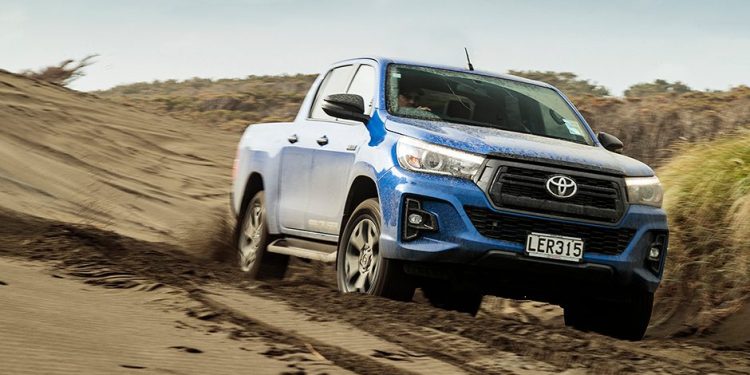Toyota NZ ‘disappointed about misinformation’ about electric utes from govt
Both Toyota New Zealand and the Motor Industry Association have spoken out against the New Zealand Government following comments about the availability of fully electric utes.
The two groups issued separate statements today following apparent confusion from the government around just how far away fully electric utes are from being in Kiwi showrooms, after comments were made earlier today that mainstream brands will have fully electric utes available locally within the next 12 to 24 months.
This follows the weekend’s unveiling of the Clean Car Discount scheme, which introduces rebates for electric vehicles and plug-in electric vehicles next month, at the expense of high-emission vehicles such as utes, which are set to incur a levy from January 2022.
“I’d like to reiterate that we do not have any plans for a battery electric Hilux in our line-up in the next 18 – 24 months,” says Neeraj Lala, Toyota New Zealand Chief Executive Officer.
“It is irresponsible to suggest that customers stop buying non-electric vehicles immediately until there is an electric option available. The range and volumes of EV’s needed to meet demand is simply not available, and many customers still need a vehicle to transport their family or operate their business.
“Our extensive hybrid range has allowed us to contribute to 43 per cent of the overall reduction of CO2 emissions over the past five years in New Zealand. Hybrid technology is more readily available and is significantly more affordable for everyday kiwis. Battery electric technology is coming but is not quite there yet.”
“As a brand we are focused on achieving affordability of low emission technology for everyday kiwis, not just the top 2%.”
Lala has previously confirmed hopes of a hybrid Hilux entering the market in the coming years, but not fully electric. Toyota Global also confirmed in April that it has 15 new electrified models (spread between full electric, plug-in hybrid, and conventional hybrid) coming down the pipe, adding that it hopes to “bring electrification to the pickup truck lineup in the near future, including hybrid and BEV powertrains.” It’s clear that any existing plans of an electric Hilux are distant.
After praising the Clean Car Discount yesterday, MIA CEO David Crawford joined Lala in criticising the statements made by ministers, adding that such statements could be “a death nell to business continuity”.
“Based on feedback from members of the Association, one or two brands are working hard to get in a fully electric ute, but our expectation is plug-in hybrid (PHEV) utes might become more widely available by 2025 and full battery electric (BEV) utes after that,” he said.
“There are a range of BEV vans on the market now and we expect more models will become available in the next 12 to 24 months.
“Speculation by Ministers of when models are coming to the market is unhelpful and potentially misleading. At worst it becomes a death nell to business continuity.”
While electric utes and trucks have been a significant talking point in the motoring press over the last 12 months, thanks largely to unveilings like that of the Ford F-150 Lightning, Hummer EV, Rivian R1-T, and Tesla Cybertruck, it’s worth noting that none have made it to production with exception to at least one Hummer. None of the aforementioned models are confirmed for the New Zealand market, either, with the Cybertruck understood to be in doubt.
The few electric utes that are in production reside in markets like China. LDV and Great Wall Motors have both previously confirmed that their electric utes will be sold in New Zealand, but both of these developments have been dormant since they were first revealed.





